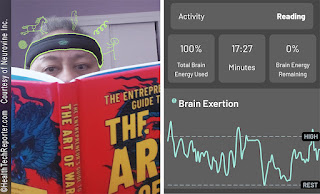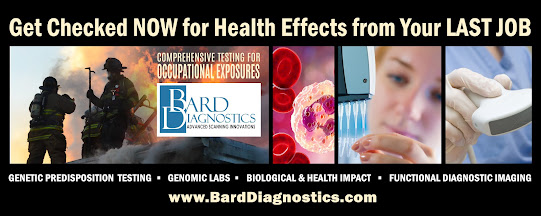INTRODUCTION- The Integrative Health Research Center/IHRC in NYC conducted a 2-year performance study in the use of various LED-based near-infrared light health devices. The test was aptly named "Scan & Treat" whereby each model was tested on consenting subjects (as directed by its accompanying instructions and training programs). Brands ranged in frequency and design supporting various health claims. All devices under review presented documentation and instructions based on each manufacturer's standard testing policies as approved by regulatory agencies for public market.
As part of any device research protocol, standard interest for user safety led to this micro-inquiry/survey of these devices, exploring the probability of injury and risk. This, our evaluators seek any form of published evidence about the risks in applying radiative energy frequency and laser directly exposed to the skin within any close proximity. Though designed for supposed therapeutic results, our challengers wish to explore any research concluding probable cause for concern or any form of negative effect.Additional concern is PBMT's effects on cancers, especially skin cancers and melanoma where direct exposure of this 'light therapy' on an infected area may awaken or aggravate the cancer's malignancy. Where PBMT is identified on the market (and with the brand's marketing claims) to reduce inflammation, an adverse concern is for the potential unknowns of a tumor's aggressiveness to be provoked by the device's exposure.
The following are statements and findings from a 2nd and 3rd level academic data search. All references and expanded details are accessible by the links enclosed.
SAFETY INQUIRY/REVIEW (10-19-2024)
An academic research/report by:
Dr. Roberta Kline - editor, HealthTech Reporter / Women's Health Digest
LED (Light Emitting Diode) is often included in PBMT and
while around since the late 1920’s it is only since the late 1960’s that it has
been used therapeutically. Its use is increasing in therapeutic applications as
it is less expensive than laser. [De Pauli Paglioni,
et al]
They both operate within defined spectrums of light, with visible red being 600-700 nm and near-infrared (NIR) being 700-1400nm. These wavelengths correspond to the maximal absorption of skin without creating heat. [Torres, Angeli E et al.]
While there are differences between LLLT and LED, they have been found to be equally effective in many use cases, including wound healing, inflammation, and pain relief. [Torres, Angeli E et al.]

Table 1 source: Torres,
Angeli E et al.
THE CRITICAL ROLE OF DIAGNOSTICS IN HEALTH AND WELLNESS By: Dr. Jess Sabrowsky DNP, RN, FNP-BC What I have learned over the years is the importance of listening to the patient, but equally, the importance of using data-driven diagnostics to make real-time decisions about care. This is not just about numbers on a chart—it is about understanding the full picture of your health, long before symptoms arise. We need to use technology, diagnostics, and assessment techniques to gather real data. Data that can guide each patient on their unique health journey. Diagnostics help us understand the true state of a person’s health, even when they may not feel “sick.” This is where the rubber meets the road: when you find a PCP who truly understands the importance of these tools and works with you to achieve your wellness goals and who also has skills beyond the transitional medical model to help you live your best life. Having difficult conversations is uncomfortable, but it is necessary for growth. If you want a healthcare provider who will partner with you—someone who creates a safe space, builds trust, and encourages honest dialogue to support long-term growth—then you must also be willing to put in the effort. Finding a provider who matches your commitment to your health, and one who uses diagnostics to empower you, is key to achieving your goals. WHY DIAGNOSTICS MATTER In short, diagnostics are essential because they offer concrete, actionable insights into your health that go beyond surface-level symptoms. They help uncover hidden health risks and enable early intervention, which can be the difference between preventing a chronic condition or managing it effectively. Diagnostics allow for personalized care tailoring interventions to meet the specific needs of the individual based on real, measurable data. I also would add that as a provider I prefer to reference functional lab ranges when reviewing results as I find that I can make small preventative recommendations and also challenge individuals and providers to think outside the box when looking to help resolve health conditions, like in the case of my daughter who otherwise would still be suffering. Let’s aim to stop the suffering and optimize wellness for all who seek it. |
PBMT works via absorption by mitochondrial chromophores
including Cytochrome c oxidase and flavoenzymes, which facilitate electron
transport and ATP synthesis. It also is involved in release of nitric oxide
(NO) which is involved in mitochondrial antioxidant defense and would account
for clinical and research observations that PBMT helps to mitigate oxidative
damage from radiation or chemotherapy. Gene expression influenced to enhance
regeneration and repair, including cell proliferation & migration, immune
and angiogenesis. [Glass GE.]
Cells with higher concentrations of mitochondria appear to require lower doses for therapeutic effects, whereas cells such as fibroblasts and keratinocytes require more due to lower mitochondrial density. [Glass GE]
Multiple cell culture and animal studies have shown that PBMT has little or no effect on cancer cell viability, nor does it induce neoplastic changes in normal cells. The rare studies that showed a possible effect were in animals with compromised immune systems. [Glass GE]
A large review published by Bensadoun RJ et al in 2020 showed that animal studies and clinical trials support the safety of PBMT related to tumor growth, and may even be beneficial for overall survival in patients with cancer. The conflicting results from a few in vitro cell culture studies were felt to be related to doses outside of normal clinical use, and thus not relevant to safety in humans.
In 2022, a position paper from the WALT Congress [Robijns J et al.] stated that PBMT has been shown to have a biphasic dose-response, with lower doses having potentially less effect and higher doses having potentially no beneficial or even adverse effects, that warrants further clinical research to clarity optimal dosage.
They also stated that the genetic variability of individual tumors, as revealed by the technology of precision oncology, may contribute to variable response to PBMT. Indeed, some tumors have genetic variations in genes that are targeted by PBMT, such as PI3K. One example is squamous cell cancers of the mouth, where up to 35% of tumors have alterations in the PI3K pathway. Thus, further research with this more individualized approach is needed and should replace one-size-fits-all approaches.
Their conclusion was that, although PBMT is generally safe for patients with cancer, there is a lack of definitive evidence regarding potential enhancement of tumor growth and long-term survival, thus more clinical trials and robust data regarding use with cancer are needed. They also specifically did not recommend direct treatments to the tumor, and advised that all patients should be fully informed of the potential benefits and risks.
References:
1) Glass GE. Photobiomodulation: A Systematic Review of the Oncologic Safety of Low-Level Light Therapy for Aesthetic Skin Rejuvenation. Aesthet Surg J. 2023 Apr 10;43(5):NP357-NP371. doi: 10.1093/asj/sjad018.
2) De Pauli Paglioni, Mariana, et al. "Tumor Safety and Side Effects of Photobiomodulation Therapy Used for Prevention and Management of Cancer Treatment Toxicities. A Systematic Review." Oral Oncology, vol. 93, 2019, pp. 21-28, https://doi.org/10.1016/j.oraloncology.2019.04.004.
3) Torres, Angeli E., and Henry W. Lim. "Photobiomodulation for the Management of Hair Loss." Photodermatology, Photoimmunology & Photomedicine, vol. 37, no. 2, 2021, pp. 91-98, https://doi.org/10.1111/phpp.12649.
4) Bensadoun RJ, Epstein JB, Nair RG, et al. World Association for Laser Therapy (WALT). Safety and efficacy of photobiomodulation therapy in oncology: A systematic review. Cancer Med. 2020 Nov;9(22):8279-8300. doi: 10.1002/cam4.3582.
5) Robijns, Jolien, et al. "Photobiomodulation Therapy in Management of Cancer Therapy-induced Side Effects: WALT Position Paper 2022." Frontiers in Oncology, vol. 12, 2022, p. 927685, https://doi.org/10.3389/fonc.2022.927685






































